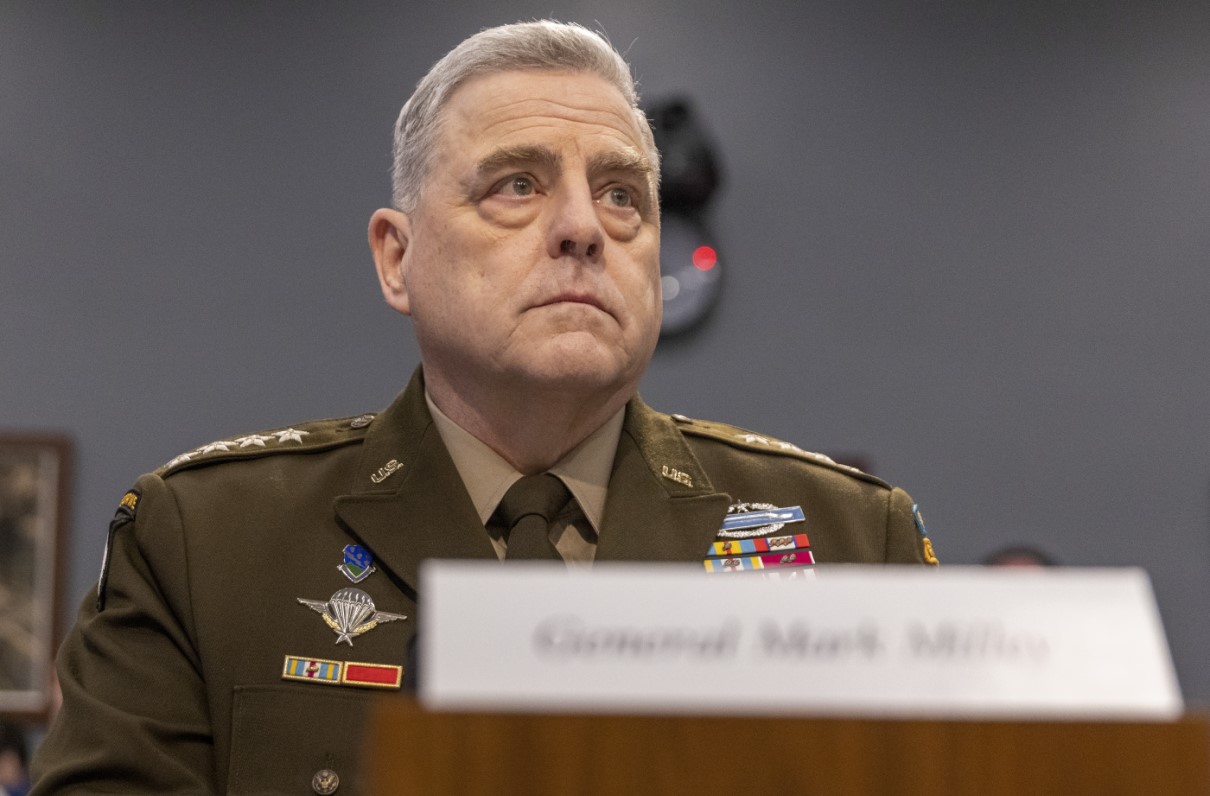The nation’s top officer acknowledged concerns raised by MOAA and other advocacy groups regarding proposed medical billet cuts, telling a House committee the reductions could pose a risk to battlefield medicine.
“The key issue here is the … medical readiness of the force, and do we have enough doctors, nurses and medics and corpsmen in the fielded force to handle combat conditions,” Gen. Mark Milley, USA, Chairman of the Joint Chiefs of Staff, told the House Appropriations Defense Subcommittee on May 11. “Are there enough doctors and nurses available to man combat support hospitals and other field hospitals that are necessary in combat? Candidly, I do have concerns about that.”
Milley’s comments were in response to a question from Rep. Ann Kirkpatrick (D-Ariz.) about military health system (MHS) reforms representing the most significant transformation of the MHS in decades.
[RELATED: TRICARE Changes, Pay Raise Top MOAA Priorities as NDAA Timeline Takes Shape]
Medical billet cuts have been a top advocacy priority for MOAA since they were revealed in the FY 2020 administration budget request; early advocacy work highlighted potential negative consequences to operational and medical readiness as well as beneficiary access to care.
When COVID-19 emerged, MOAA’s concerns shifted to maintaining MHS surge capacity given the calls for military medical support in the whole-of-nation response to the pandemic.
Most recently, advocacy efforts have focused on instability in the civilian health care system and the inability to predict capacity to absorb beneficiary care that may be shifted from military treatment facilities to the TRICARE network.
Successful … So Far
For the past three years, MOAA has successfully pushed for provisions in the annual National Defense Authorization Act (NDAA) halting billet cuts and requiring additional DoD analysis, mitigation planning, and reports to Congress.
We were gratified to see a one-year strategic pause on medical billet cut plans included in the FY 2023 DoD budget request, but MOAA will maintain advocacy efforts on the Hill. We remain concerned about other MHS reforms, including plans for direct care system restructuring that could downsize or close up to 50 military treatment facilities.
MOAA supports commonsense restructuring, such as efforts to improve medical readiness by consolidating specialty care in major military medical centers – a move ensuring sufficient patient caseload to maintain and sharpen uniformed provider skills. However, these moves must not come at the expense of beneficiary access to quality care.
[RELATED: Is Your Medical Facility Closing? DoD Restarts ‘Modified’ Realignment Plans]
The civilian health care system is in a very different place today than it was in 2017, when MHS reforms were envisioned. These plans must be validated and/or adjusted to account for changes in civilian medical system capacity and workforce projections. Without rigorous DoD analysis and congressional oversight, unintended consequences of these reforms could erode an earned benefit for millions of servicemembers, retirees, families, and survivors.
Keep up with the latest on this issue and other MOAA advocacy priorities by visiting MOAA’s Advocacy News page.
More Members Mean More Influence Over Our Health Care
Get involved and make sure your interests are addressed. Because the larger our voice is, the greater our impact will be.

